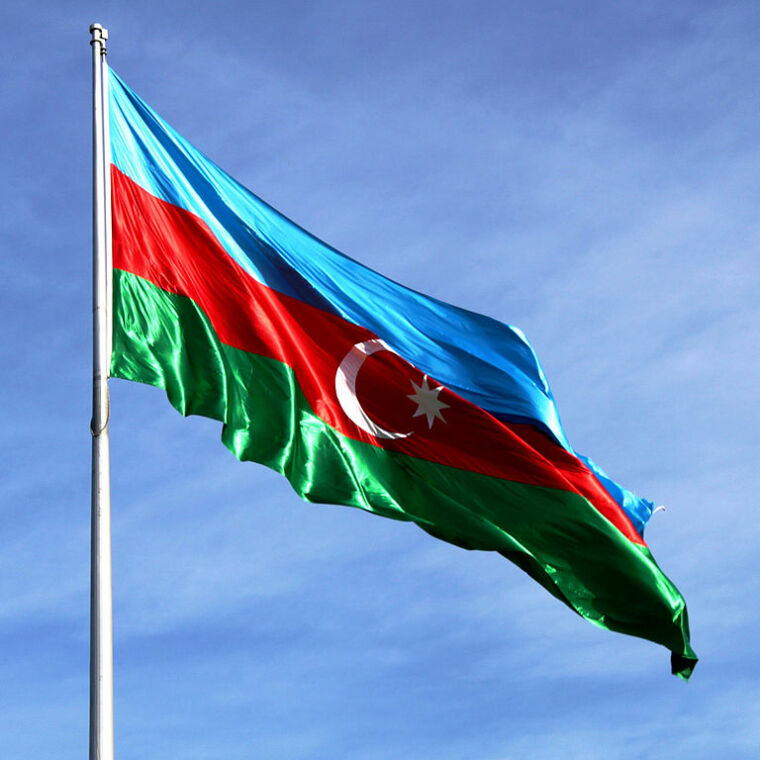Azerbaijan registers Bible society after 20 year wait, but unclear whether it will be allowed to print Bibles
After 20 years of waiting, a Bible society has been registered in Azerbaijan but it is still unclear whether it is allowed to print Bibles due to the government's strict regulations on religious literature.
Terje Hartberg from United Bible Societies is optimistic about the latest development. He believes that it is a step towards starting a Bible ministry in the country.

However, the Bible society is still required to seek the approval of the government for printed or imported materials. The government also restricts the distribution of literature to state-approved sites.
According to a Forum 18 report from 2015, those who distribute religious literature without the permission of the state would have their materials confiscated and would also be subject to criminal or administrative punishment. The report notes that foreigners who are caught distributing religous materials would face deportation.
The Old Testament remains one of the banned books in Azerbaijan.
When asked whether the ban applies to the whole Bible, Felix Cortley of Forum 18 says in an email to World Watch Monitor, "Well, you can't publish, print, import or distribute any religious publication without prior permission from the State Committee, which will also set numbers allowed. So nothing is approved until it is approved."
"Then it can only be distributed in a state-approved venue with a sticker from the State Committee. It appears these stickers have not been available since April. As for the Old Testament, that appears to have been on a police list. So who knows?" Cortley continues.
Azerbaijan ranks as the 34th most dangerous country to be a Christian in Open Doors' World Watch List. The officially secular country tolerates religion but the level of surveillance is very high.
Forum 18 reports that less than two percent of its population are Russians or other Slavs who are regarded as Christians. 90 percent of its population are ethnic Azeris who are considered as Shia Muslims. It says that the human rights violations in the country are much worse in the exclave of Nakhichevan which borders Iran, Turkey and Armenia.
 Christians don't have to affirm transgenderism, but they can’t express that view at work: tribunal
Christians don't have to affirm transgenderism, but they can’t express that view at work: tribunal Archaeology discovery: Medieval Christian prayer beads found on Holy Island
Archaeology discovery: Medieval Christian prayer beads found on Holy Island Presbyterian Church in America votes to leave National Association of Evangelicals
Presbyterian Church in America votes to leave National Association of Evangelicals Over 50 killed in 'vile and satanic' attack at Nigerian church on Pentecost Sunday
Over 50 killed in 'vile and satanic' attack at Nigerian church on Pentecost Sunday Ukrainian Orthodox Church severs ties with Moscow over Patriarch Kirill's support for Putin's war
Ukrainian Orthodox Church severs ties with Moscow over Patriarch Kirill's support for Putin's war Islamic State kills 20 Nigerian Christians as revenge for US airstrike
Islamic State kills 20 Nigerian Christians as revenge for US airstrike Man who served 33 years in prison for murder leads inmates to Christ
Man who served 33 years in prison for murder leads inmates to Christ


 Nigerian student beaten to death, body burned over ‘blasphemous’ WhatsApp message
Nigerian student beaten to death, body burned over ‘blasphemous’ WhatsApp message 'A new low': World reacts after Hong Kong arrests 90-year-old Cardinal Joseph Zen
'A new low': World reacts after Hong Kong arrests 90-year-old Cardinal Joseph Zen Iran sentences Christian man to 10 years in prison for hosting house church worship gathering
Iran sentences Christian man to 10 years in prison for hosting house church worship gathering French Guyana: Pastor shot dead, church set on fire after meeting delegation of Evangelicals
French Guyana: Pastor shot dead, church set on fire after meeting delegation of Evangelicals ‘Talking Jesus’ report finds only 6% of UK adults identify as practicing Christians
‘Talking Jesus’ report finds only 6% of UK adults identify as practicing Christians Mission Eurasia ministry center blown up in Ukraine, hundreds of Bibles destroyed: 'God will provide'
Mission Eurasia ministry center blown up in Ukraine, hundreds of Bibles destroyed: 'God will provide' Church holds service for first time after ISIS desecrated it 8 years ago
Church holds service for first time after ISIS desecrated it 8 years ago Burger King apologizes for 'offensive campaign' using Jesus' words at the Last Supper
Burger King apologizes for 'offensive campaign' using Jesus' words at the Last Supper Uganda: Muslims abduct teacher, burn him inside mosque for praying in Christ’s name
Uganda: Muslims abduct teacher, burn him inside mosque for praying in Christ’s name